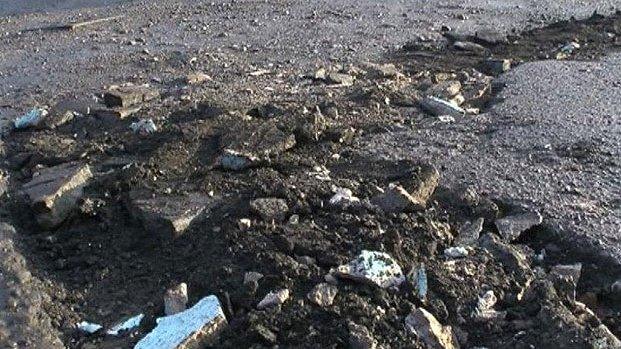Damaged roads in Wales 'would take nine years to fix'
- Published
- comments
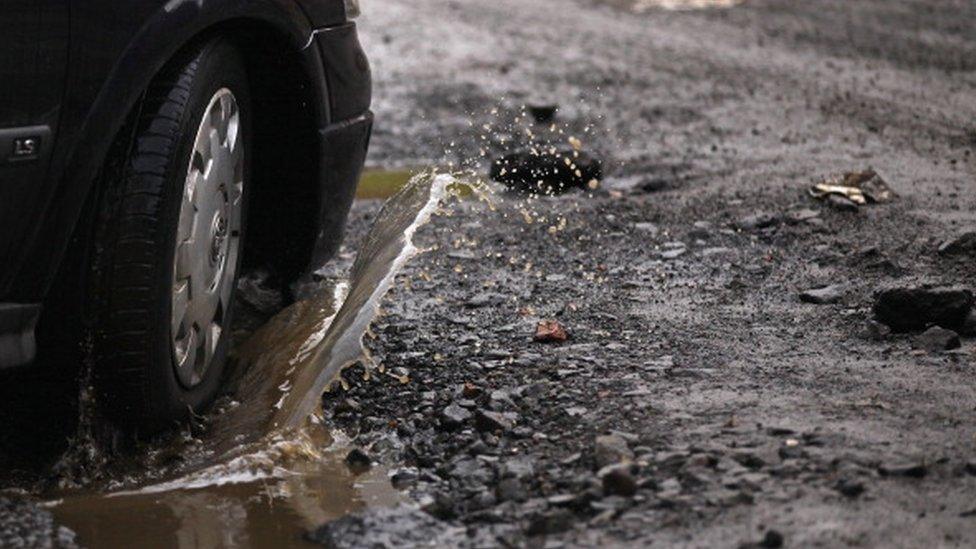
It would cost nearly £600m and take nine years to get Wales' roads into a reasonable condition, a study has said.
The Asphalt Industry Alliance (AIA) looks at the state of council-owned roads in England and Wales.
Compared to last year, the cost has dropped by more than £100m but the time it would take has risen by three years.
The Welsh Local Government Association (WLGA) said an extra £172m was spent between 2012-13 and 2014-15, cutting the number of roads in a poor state.
An ageing network, "decades of underfunding", increased traffic and wetter winters were all blamed for the problem.
The AIA's Annual Local Authority Maintenance (ALARM) survey, said the estimated one-time cost to get Wales' roads into a decent state would be £591.5m, an average of just under £26.9m per council.
This compares to £12.06bn for England and Wales.
AIA's survey said the average time before a road was resurfaced in Wales was 63 years, compared to 55 years in England.
The AIA said councils were doing all they could with the money available, but there came a point where no further efficiency savings could be made.
David Harding from the AIA said roads "are council's biggest assets"
Just over 141,000 potholes were filled in Wales in 2016, but nearly one in five local authority-maintained roads were reported as having a useful lifespan of less than five years.
The average structural maintenance budget shortfall was £3.7m per council.
A WLGA spokesman said a local government borrowing initiative (LGBI) allowed the extra cash to be spent on long-term planning, rather than a reactive response to patching up roads.
He added: "In order to sustain such improvement there has to be continued investment and the WLGA has been in discussion with Welsh Government about the possibility of a further round of the LGBI to maintain and improve condition of the network.
"This could help to deal with additional pressures caused by heavier lorries and could form part of a necessary response in Wales."
- Published28 March 2017
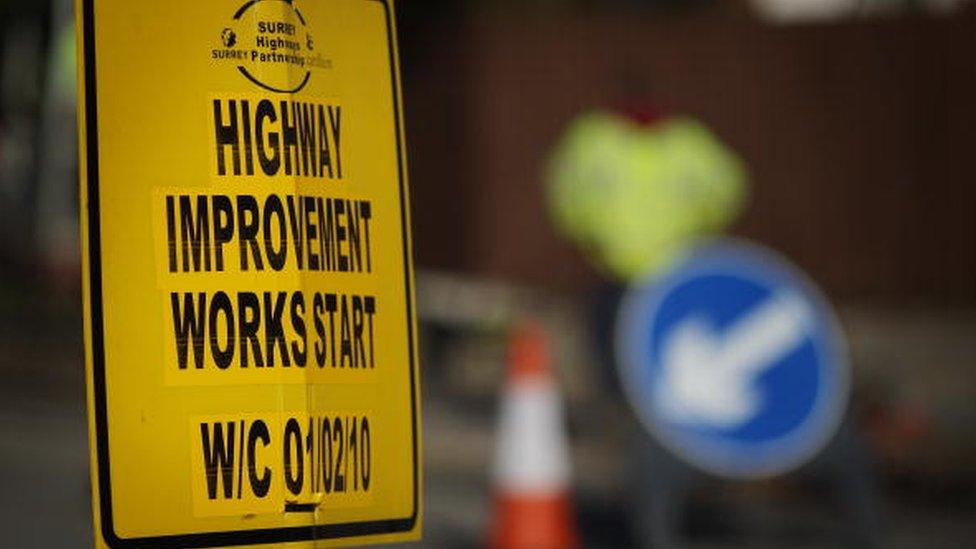
- Published10 August 2016
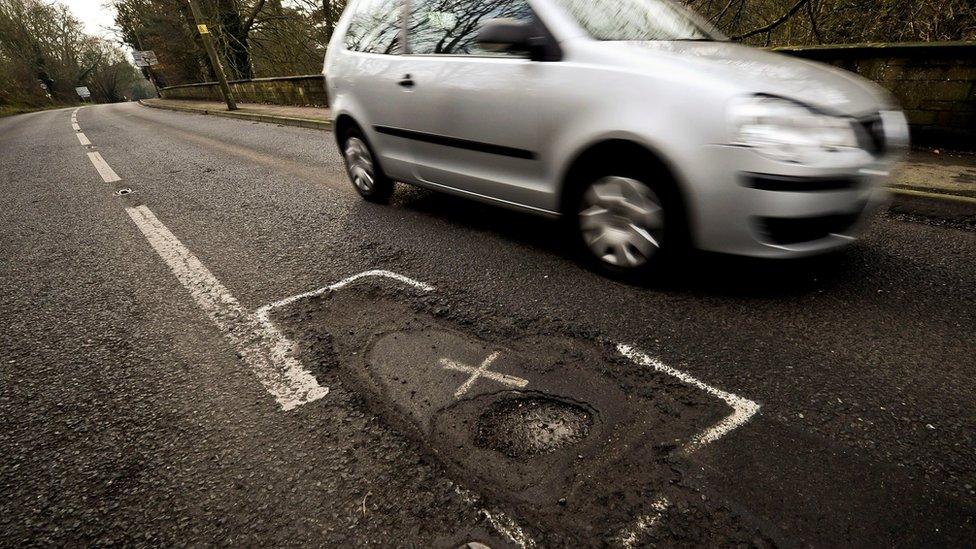
- Published23 March 2016

- Published10 March 2016
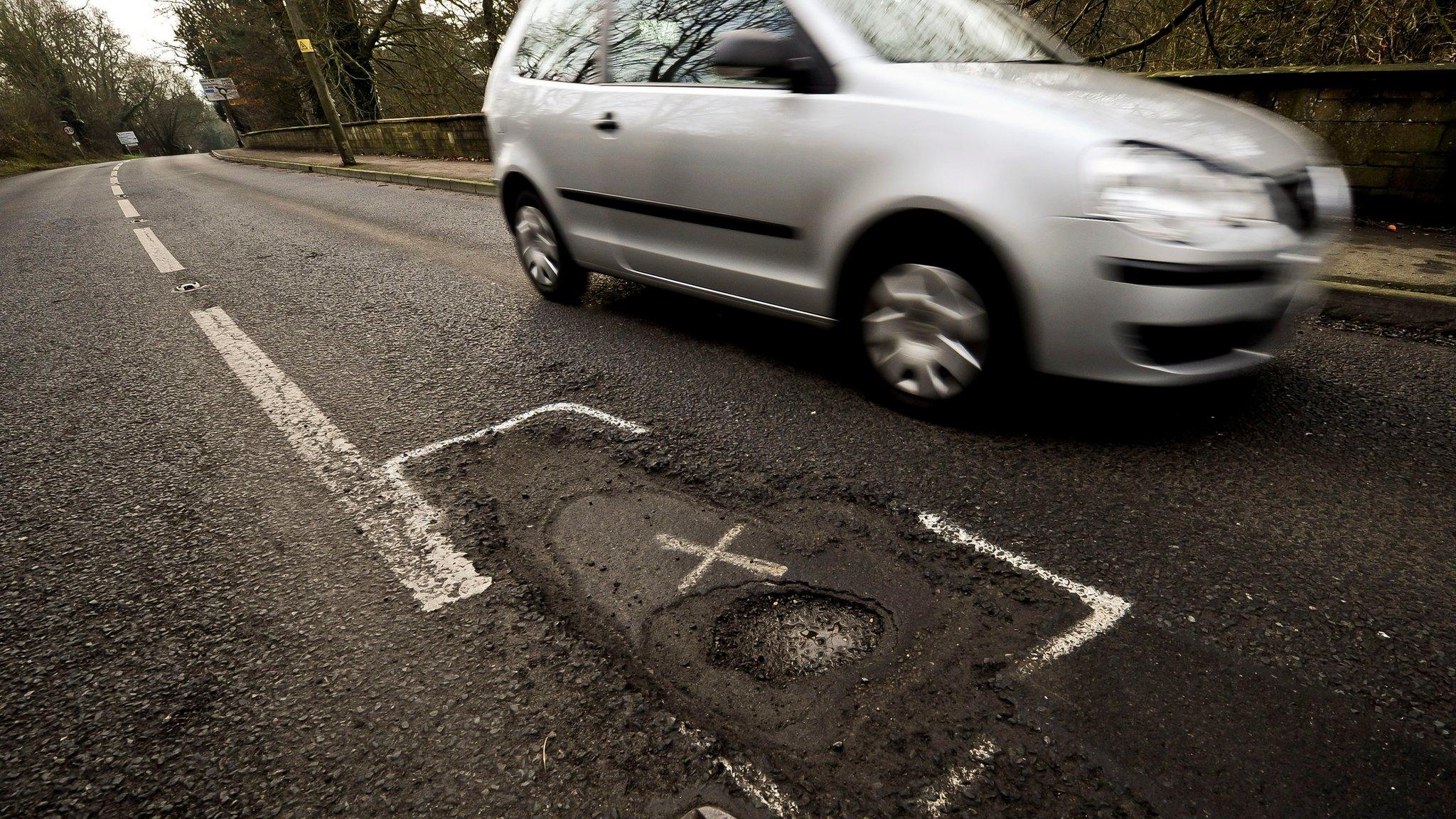
- Published10 December 2014
